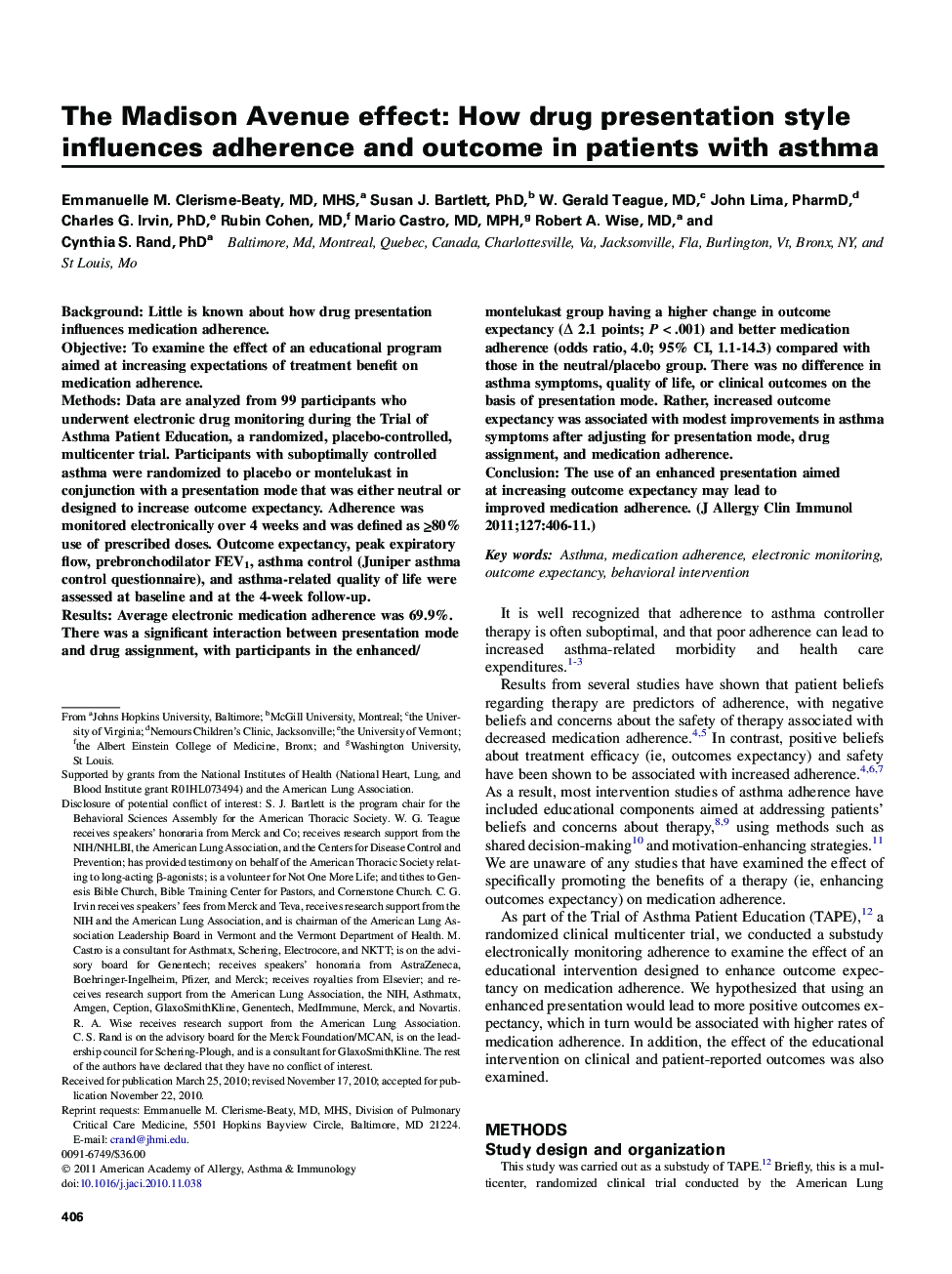| Article ID | Journal | Published Year | Pages | File Type |
|---|---|---|---|---|
| 3199833 | Journal of Allergy and Clinical Immunology | 2011 | 6 Pages |
BackgroundLittle is known about how drug presentation influences medication adherence.ObjectiveTo examine the effect of an educational program aimed at increasing expectations of treatment benefit on medication adherence.MethodsData are analyzed from 99 participants who underwent electronic drug monitoring during the Trial of Asthma Patient Education, a randomized, placebo-controlled, multicenter trial. Participants with suboptimally controlled asthma were randomized to placebo or montelukast in conjunction with a presentation mode that was either neutral or designed to increase outcome expectancy. Adherence was monitored electronically over 4 weeks and was defined as ≥80% use of prescribed doses. Outcome expectancy, peak expiratory flow, prebronchodilator FEV1, asthma control (Juniper asthma control questionnaire), and asthma-related quality of life were assessed at baseline and at the 4-week follow-up.ResultsAverage electronic medication adherence was 69.9%. There was a significant interaction between presentation mode and drug assignment, with participants in the enhanced/montelukast group having a higher change in outcome expectancy (Δ 2.1 points; P < .001) and better medication adherence (odds ratio, 4.0; 95% CI, 1.1-14.3) compared with those in the neutral/placebo group. There was no difference in asthma symptoms, quality of life, or clinical outcomes on the basis of presentation mode. Rather, increased outcome expectancy was associated with modest improvements in asthma symptoms after adjusting for presentation mode, drug assignment, and medication adherence.ConclusionThe use of an enhanced presentation aimed at increasing outcome expectancy may lead to improved medication adherence.
